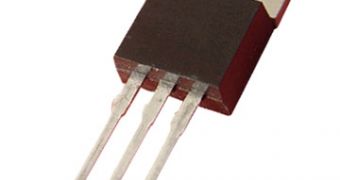Scientists from the McGill University in Montreal, Quebec, Canada, believe they have stumbled upon a novel state of matter while experimenting with electron crystals, like those found in regular transistors. Using powerful magnetism and extremely low temperatures, they caused the bidimensional crystal to act very oddly, comparable with a 3D electron crystal. The results they obtained do not abide by the normal physical laws and are still giving headaches to theorists, but may prove to be the Holy Grail for researchers that got stuck in the process of minimizing computer chips.
As Moore's law edicts, the number of transistors that can be successfully squeezed onto a chip doubles roughly every 2 years, due to new technology tricks, but there's a limit to all this and it is imposed by the quantum physics – and it will be reached in about 10 years. So, researchers subjected the purest semiconductor material, chilled at temperatures about 100 times lower than those in the outer space (which is 2.73°K, or -270.42°C, or -454.756°F), to the influence of the world's most powerful magnet built so far and found in Florida. What they obtained defied the logics of known physics.
“Picture a sandwich, and the ham in the middle is your electrons. In a 2D electron crystal, the electrons are squeezed between two materials and they're very two dimensional. They can move on a plane, like billiard balls on a pool table, but there's no up and down motion. There's a thickness, but they're stuck,” explains Dr. Guillaume Gervais, director of McGill's Ultra-Low Temperature Condensed Matter Experiment Lab. “We decided to tweak the two-dimensionality by applying a very large magnetic field, using the largest magnet in the world at the Magnet Lab in Florida,” he adds. “You only have access to it for about five days a year, and on the third day, something totally unexpected popped.”
“In a standard transistor, you have a gate and the electron flow is controlled by it like a faucet would control a gas flow. You can understand the particles as independent units, which lets us treat them as ones and zeros, or on and off switches in digital computing. However, once you get down to the nano-scale, quantum forces kick in and the electrons may condense into a collective state and lose their individual nature. Then all sorts of bizarre phenomena pop up. In some cases, the electrons may even split. Concepts of 'on' and 'off' lose all meaning under these conditions,” shares the scientist. “We need to understand quantum effects so we can use them to our own advantage and perhaps reinvent the transistor altogether. That way, progress in electronics will keep happening.”

 14 DAY TRIAL //
14 DAY TRIAL //